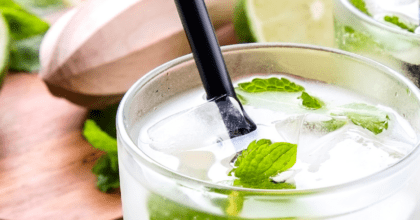Healthy sodas not too hard for Canadians to swallow
Toronto (August 6, 2014)—Many Canadians are constantly looking for ways to adopt a healthier diet and monitor what ingredients they are eating and drinking, as seen by the fact that more than half (52%) say that they like to check the ingredients on the packaging of carbonated soft drinks (CSDs). However, rather than give up their favorite fizzy beverage, it seems that a high share of Canadians are more interested in healthier adaptations of their favorite soft drinks. Indeed, new Mintel research finds that four in 10 (41%) Canadian CSD users would be interested in CSDs that aid digestive health.
Additionally, one third (36%) of these users would be interested in buying CSDs that contain botanical extracts and 46% agree that types with less sweet flavors would complement a meal better. This underlines the potential for brands to continue driving the profile of the ‘lighter’ segment of the market, which stands at $3 billion overall, compared to over $41 billion in the US.
“There may be opportunities for CSDs to leverage functional benefits to boost usage in the category. Interestingly, this would hark back to when these products were first introduced and were marketed with claims that they could aid digestion.” says Warren de Lima, senior research analyst at Mintel. “Functionality has been a boon to markets such as energy drinks, with brands delivering tangible benefits to users. While there remain some difficulties for brands to use approved claims, this represents an area worth further exploration.”
When it comes to choosing a particular carbonated soft drink, health again plays a role. 29% of users state that low/no calorie content would make them choose one type of CSD over another and 14% would be attracted to a CSD with natural ingredients. This is of particular relevance, since the attribute which Canadian CSD drinkers are most likely to associate with them is that they are artificial (62%). Younger consumers are also surprisingly the most likely to agree that carbonated drinks which are less fizzy appeal to them, with agreement peaking among 18-24s at 35%, well ahead of the overall average (24%).
Warren continues:
“Pepsi Next, introduced in early 2014, was launched to respond to consumer concerns around CSDs being artificial and high in sugar. It is positioned as a low-calorie cola that is ‘naturally sweetened’ by using stevia extract, allowing the sugar content to undercut ‘the leading regular cola’ by 30%. Lower or no-calorie drinks are now a central part of the CSD market and essential to the portfolios of many companies such as Pepsi and Coca-Cola.
The enduring criticism of the category for its claimed health deficiencies has now been tackled by many brands. The subsequent progress in this ‘lighter’ segment over the past decade has been significant, and looks set to continue growing in the years ahead. However, taste is still all-important and consumers will only embrace these ‘lighter’ drinks in the long term if they taste as good as the regular/standard varieties. Vitaminwater’s recent backtracking from a stevia-based recipe in the US bottled water market underlines the difficulties brands face in balancing taste with health.”
-
Mintel StoreGet smart fast with our exclusive market research reports, delivering the latest data, innovation, trends and strategic recommendations....View reports
-
Mintel LeapMintel Leap is a revolutionary new AI-powered platform that will transform your research process....Book a demo







































